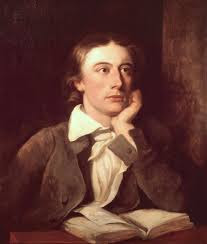Little Red Riding Hood and the Wolf
As soon as Wolf began to feel
That he would like a decent meal, He went and knocked on Grandma’s door. When Grandma opened it, she saw The sharp white teeth, the horrid grin, And Wolfie said, “May I come in?” Poor Grandmamma was terrified, “He’s going to eat me up!” she cried. And she was absolutely right. He ate her up in one big bite.
But Grandmamma was small and tough,
And Wolfie wailed, “That’s not enough! I haven’t yet begun to feel That I have had a decent meal!” He ran around the kitchen yelping, “I’ve got to have a second helping!”
Then added with a frightful leer,
“I’m therefore going to wait right here Till Little Miss Red Riding Hood Comes home from walking in the wood.”
He quickly put on Grandma’s clothes,
(Of course he hadn’t eaten those). He dressed himself in coat and hat. He put on shoes, and after that, He even brushed and curled his hair, Then sat himself in Grandma’s chair.
In came the little girl in red.
She stopped. She stared. And then she said, “What great big ears you have, Grandma.”
“All the better to hear you with,”
the Wolf replied. “What great big eyes you have, Grandma.” said Little Red Riding Hood. “All the better to see you with,” the Wolf replied.
He sat there watching her and smiled.
He thought, I’m going to eat this child. Compared with her old Grandmamma, She’s going to taste like caviar.
Then Little Red Riding Hood said,
“But Grandma, what a lovely great big furry coat you have on.”
“That’s wrong!” cried Wolf.
“Have you forgot To tell me what BIG TEETH I’ve got? Ah well, no matter what you say, I’m going to eat you anyway.”
The small girl smiles. One eyelid flickers.
She whips a pistol from her knickers. She aims it at the creature’s head, And bang bang bang, she shoots him dead.
A few weeks later, in the wood,
I came across Miss Riding Hood. But what a change! No cloak of red, No silly hood upon her head. She said, “Hello, and do please note My lovely furry wolfskin coat.” |
Caperucita Roja y el Lobo.
Estando una mañana haciendo el bobo
le entró un hambre espantosa al Señor Lobo, así que, para echarse algo a la muela, se fue corriendo a casa de la Abuela. “¿Puedo pasar, Señora?”, preguntó. La pobre anciana, al verlo, se asustó pensando: “¡Este me come de un bocado!”.
Y, claro, no se había equivocado:
se convirtió la Abuela en alimento en menos tiempo del que aquí te cuento. Lo malo es que era flaca y tan huesuda que al Lobo no le fue de gran ayuda: “Sigo teniendo un hambre aterradora… ¡Tendré que merendarme otra señora!”.
Y, al no encontrar ninguna en la nevera,
gruñó con impaciencia aquella fiera: “¡Esperaré sentado hasta que vuelva Caperucita Roja de la Selva!”
-que así llamaba al Bosque la alimaña,
creyéndose en Brasil y no en España-. Y porque no se viera su fiereza, se disfrazó de abuela con presteza, se dio laca en las uñas y en el pelo, se puso la gran falda gris de vuelo, zapatos, sombrerito, una chaqueta y se sentó en espera de la nieta.
Llegó por fin Caperucita a mediodía
y dijo: “¿Cómo estás, abuela mía? Por cierto, ¡me impresionan tus orejas!”.
“Para mejor oírte, que las viejas
somos un poco sordas”. “¡Abuelita, qué ojos tan grandes tienes!”. “Claro, hijita, son las lentillas nuevas que me ha puesto para que pueda verte Don Ernesto el oculista”, dijo el animal
mirándola con gesto angelical
mientras se le ocurría que la chica iba a saberle mil veces más rica que el rancho precedente. De repente
Caperucita dijo: “¡Qué imponente
abrigo de piel llevas este invierno!”.
El Lobo, estupefacto, dijo: “¡Un cuerno!
O no sabes el cuento o tú me mientes: ¡Ahora te toca hablarme de mis dientes! ¿Me estás tomando el pelo…? Oye, mocosa, te comeré ahora mismo y a otra cosa”.
Pero ella se sentó en un canapé
y se sacó un revólver del corsé, con calma apuntó bien a la cabeza y -¡pam!- allí cayó la buena pieza.
Al poco tiempo vi a Caperucita
cruzando por el Bosque… ¡Pobrecita! ¿Sabéis lo que llevaba la infeliz? Pues nada menos que un sobrepelliz que a mí me pareció de piel de un lobo que estuvo una mañana haciendo el bobo. Versión de Miguel Azaola. |
Roald Dahl (Wales, 1916-1990)
















